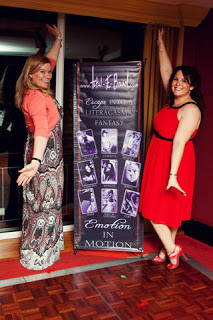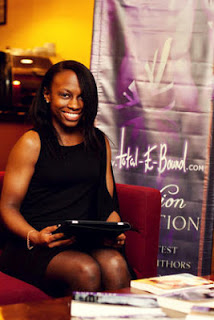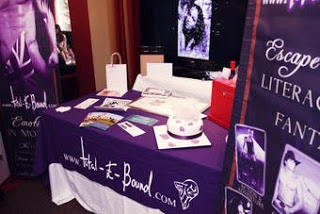By Lisabet Sarai
I recently reread a favorite book from
my youth, Wilkie Collins’ The Moonstone. Originally published
in 1868, it is considered to be an early classic of detective
fiction. An unscrupulous British officer stationed in India plucks
the Moonstone, a massive diamond, from the forehead of a Hindu idol
and carries it back to England. Misfortune, reputed to be the effects
of a curse, dogs the man until his death, whereupon the gem becomes a
bequest to his niece upon her eighteenth birthday. On the very night
Rachel receives the stone, however, it disappears from her bedroom.
Broken engagements, assaults, scandal, madness, illness, despair and
death follow, as the mystery becomes increasingly tangled.
The first time I read The Moonstone,
I was caught up in the story. That was long before I began my career
as a writer. During this more recent reading, I found myself at least
as conscious of Collins’ style and craft as I was of the plot.
The novel unfolds in sections narrated
by different individuals, each of whom (according to the framing
conceit of the tale) has been asked to report on the events he or she
personally witnessed relating to the loss of the diamond. Some of
the narrators are major actors in the mystery, while others are
peripheral. Collins does a magnificent job giving each one a
distinctive voice. The various sections not only propel the plot,
reveal clues and cleverly misdirect the reader’s attention, they also
create surprisingly three dimensional images of the characters –
their motivations, prejudices and peculiarities. My pleasure upon
this second reading of the book came as much from appreciating these
unwitting self-portraits as from the gradual unraveling of the
secrets of the stone. And much of the richness of these vignettes
derives from the characters’ differing use of language.
The experience started me thinking
about the wonders of English grammar. Victorian prose tends to be far
more complex grammatically than what you will find in modern novels.
Sentences are longer, with multiple clauses, adverbial modifiers,
rhetorical questions and parenthetical asides. Of course, some
authors of the period produced sentences so pedantic and labored that
they’re painful to read. A more skilled writer (like Collins) uses
these linguistic variations to express nuanced relationships that
would be difficult to communicate with shorter, more direct
sentences.
Consider the following passage, chosen
more or less at random. The narrator (Franklin Blake) is a young
gentleman, educated in Europe, and hopelessly in love with Rachel.
I might have
answered that I remembered every word of it. But what purpose, at
that moment, would the answer have served?
How could I tell
her that what she had said had astonished me and distressed me, had
suggested to me that she was in a dangerous state of nervous
excitement, had even roused a moment’s doubt in my mind whether the
loss of the jewel was as much a mystery to her as to the rest of us –
but had never once given me so much as a glimpse of the truth?
Without the shadow of a proof to produce in vindication of my
innocence, how could I persuade her that I knew no more than the
veriest stranger could have known of what was really in her thoughts
when she spoke to me on the terrace?
Complex indeed! We have both simple
past (“I remembered”, “I knew”) and past perfect (“had
said”, “had astonished”, “had suggested”). Blake is
describing a past conversation with Rachel, in which they discussed
another conversation that occurred the day after the diamond
disappeared (a time previous to the first conversation). Even more
intricate are the connections between facts and the counter-factual
or hypothetical, both in the simple past (“might have”, “could
I”) and more distant past (“could have known”). The tense
inflections and adverbial modifiers elucidate relationships not only
between different stretches of time but also different degrees of
reality.
How many of us could pen a paragraph so
complicated and yet so clear?
As an exercise, I tried to translate
the passage above into simpler, more modern prose.
I could have told
her I remembered every word. But I doubt she would have believed me.
I could have said
that she astonished and distressed me. She had been in a dangerous
state of nervous excitement. I had even wondered whether she really
knew more about the loss of the jewel than the rest of us. But when
we spoke, she hadn’t given me the slightest hint of the truth. Since
I had no proof of my innocence, there was no way I could convince her
that during our conversation on the terrace her accusations were as
much a mystery to me as they would have been to a stranger.
Even this reworking requires the past
and past perfect. There’s no way to get around them, since the
distinction between the first and second conversations is crucial to
the sense of the paragraph. I didn’t manage to completely remove
counter-factual expressions (“could have”,”would have been”),
either. If I had, significant chunks of meaning would have been lost.
As it is, I feel that the translation doesn’t begin to compare with
the original in terms of expressing subtleties of both logic and
emotion.
Authors today have a tendency to view
grammar as a necessary evil, a set of incomprehensible rules designed
to trip them up as they proceed in telling their story. I look at it
differently. Grammatical structures (and punctuation) exist in order
express linguistic distinctions. As writers, we’re fortunate. English
is capable of communicating a bewildering variety of such
distinctions, in wonderfully precise ways.
By comparison, I’ve been studying a
foreign language where there’s no grammatical difference between
present and past tense, or between singular or plural, a language
without articles or grammatical mechanisms for indicating that
something is contrary to fact. Native speakers manage to understand
one another, but I find the language frustrating in its lack of
specificity.
I’m sorry to see the changes that are
stripping English of some of its grammatical richness. One rarely encounters the subjunctive anymore, even in written communication.
Semi-colons are practically extinct. Indeed, one of my publisher’s
house style prohibits them, along with parenthetical asides.
Since I began publishing, my own
writing has followed the popular trends. I’ve learned to limit
subordinate clauses to no more than one or two per sentence. I’ve
been trained to avoid long passages in the past perfect and to eschew
adverbs. I won’t say that my writing has necessarily suffered; my
early work definitely tends to be overly prolix. Still, I sometimes
feel like rebelling against the starkness and simplicity of modern
prose.
When that happens, I sometimes write
something pseudo-Victorian. Here, for instance, is a passage from
Incognito, ostensibly from a Victorian woman’s secret diary:
I scarcely know
how to begin this account of my adventures and my sins. Indeed, I do
not fully understand why I feel compelled to commit these things to
writing. Clearly, my purpose is not to review and relive these
experiences in the future, for in twenty minutes’ time these
sentences will be invisible even to me. Perhaps in the years ahead, I
will trail my fingers across the empty parchment, coloured like
flesh, and the memories will come alive without the words, coaxed
from the pages by my touch like flames bursting from cold embers.
I have a secret
life, another self, and that secret has become a burden that I clutch
to myself, and yet would be relieved of. So, like the Japanese who
write their deepest desires on slips of rice paper and then burn
them, I write of secret joys and yearnings, and send that writing
into oblivion.
Let me begin
again. My name is Beatrice. The world sees me as poised, prosperous,
respectable, wife of one of Boston’s leading merchants and
industrialists, mother of two sweet children, lady of a fine brick
house on fashionable Mount Vernon Street, with Viennese crystal
chandeliers, Chinese porcelain, French velvet draperies, and Italian
marble fireplaces. I devote myself to the education of my dear Daniel
and Louisa, the management of my household, works of charity,
cultural afternoons. In sum, the many and sundry details of
maintaining oneself in proper society.
Though I have
borne two children, I am still considered beautiful. Indeed, with my
golden locks, fair skin, turquoise eyes and rosy lips, I am often
compared to an angel. How little they know, those who so describe me.
For in truth, I am depraved, wanton, and lecherous, so lost that I do
not even regret my fall.
Ah, the glorious grammar!
Am I the only one out there aroused by
this structural intricacy, as artful and constraining as shibari?
Photo by Dirty Diana











